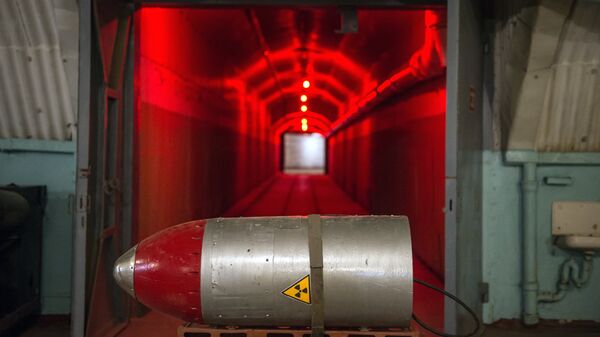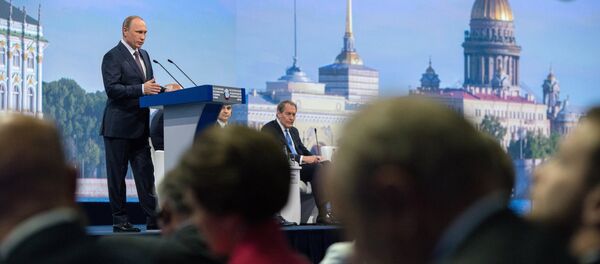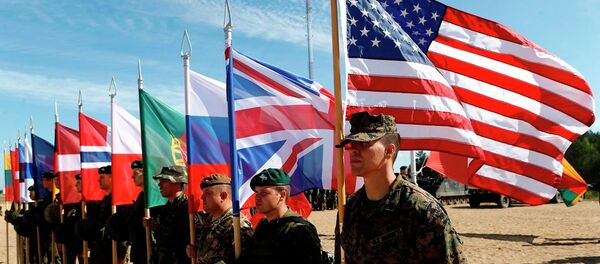For more than a year Russia and the West have been deadlocked over the ongoing Ukrainian crisis. And as the temperature of the rhetoric rises, concerns are beginning to emerge that the present standoff may ultimately recreate a new version of the 40-year-long Cold War, threatening "hard-won agreements" in the nuclear arms field, Canadian journalist and Christian Science Monitor correspondent Fred Weir warns.
Indeed, Moscow and NATO have already broken off ties, and while NATO has launched a series of provocative war games in close proximity to Russia's borders, the Kremlin, in response, has kicked off its military exercises.
Fred Weir underscored that this week "the temperature of the rhetoric jumped," bringing the sides closer to permanent military deployment on their borders.
"[T]he hard-won agreements that once reined in the strategic nuclear arms race between the US and the USSR are coming under strain," the journalist warned.
Predictably, Moscow strongly opposes the decision, stressing that the plan would seriously violate a post-Cold War status quo and "understanding that those former Soviet-controlled areas would remain demilitarized."
While the sides' strategic arms still remain under control in accordance with international treaties, "the situation is far more threatening when it comes to medium- and short-range nuclear missiles," according to the correspondent.
And since the idea of deploying nuclear-armed missiles in European territory is now openly mooted by Washington, the hard-won Intermediate Nuclear Forces (INF) accord may one day fall apart at the seams.
"If the INF treaty should be canceled, Europe could return to the nuclear standoff of the mid-1980s, in which virtually all European capitals faced less than 8 minutes' warning from Soviet SS-20 and US Pershing-II medium range nuclear missiles," Fred Weir stressed.
It is obvious that no one is interested in abolishing the deal, but it seems that the people "who never left the Cold War mentality behind" will try to grasp the opportunity to aggravate tensions in order to push the world towards the brink of conflict.
"Unless leaders on both sides call a halt to this deterioration, the basic pillars of European security — which people worked so hard to put in place — could get knocked away," the journalist highlighted, citing Viktor Kremeniuk.




